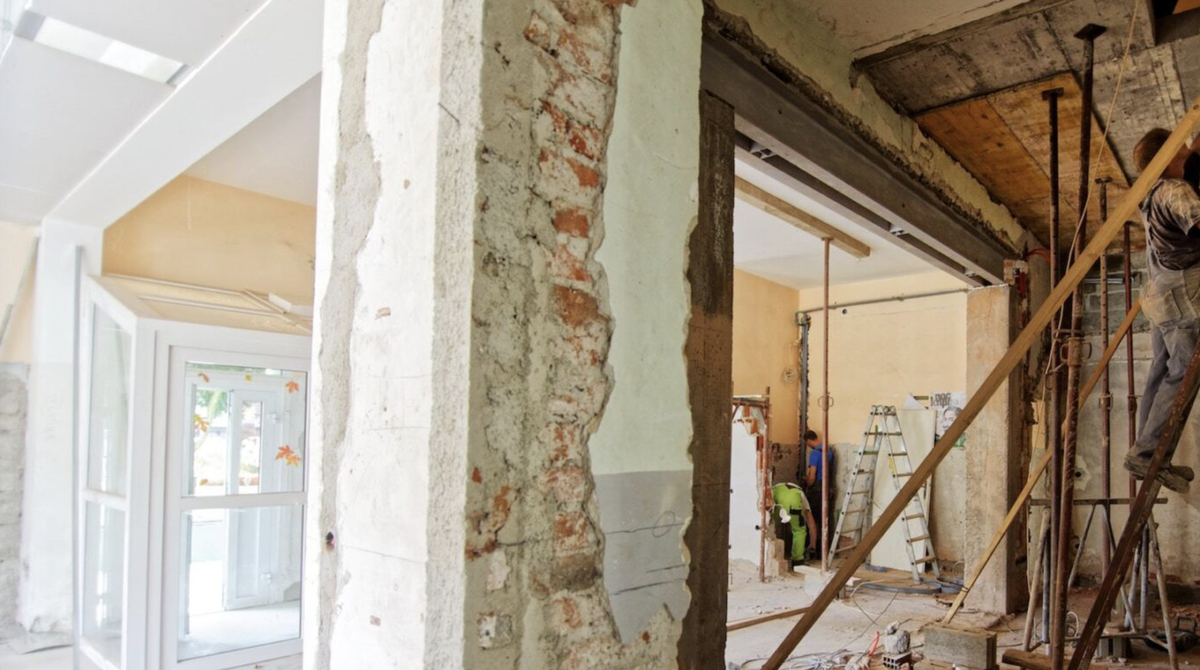NAR: Home prices experience double-digit growth across 80% of metropolitan areas in Q3
Home prices continued their impressive upward climb during the third quarter of 2021, with the median sales price of single-family existing homes increasing in 99 percent of the 183 markets measured by the National Association of Realtors (NAR).
On top of that, 78 percent of markets saw double-digit price gains, according to NAR’s latest quarterly metro home prices report released on Wednesday.
Still, that sizable figure was a bit diminished from the previous quarter, during which 94 percent of metro areas saw double-digit price gains. Likewise, just three metro areas saw price increases of more than 30 percent year over year, down from 12 metros the quarter before.
“Home prices are continuing to move upward, but the rate at which they ascended slowed in the third quarter,” NAR chief economist Lawrence Yun said in a statement. “I expect more homes to hit the market as early as next year, and that additional inventory, combined with higher mortgage rates, should markedly reduce the speed of price increases.”
Growth of the median sales price of single-family existing homes slowed to 16 percent year over year (down from 22.9 percent the quarter before), yielding a median sales price of $363,700.
All four major geographical regions saw double-digit price growth on an annual basis, with the Northeast up by 17.5 percent, the South up by 14.9 percent, the Midwest up by 10.7 percent and the West up by 10.3 percent.
Metros with the steepest annual price gains included Austin-Round Rock, Texas (33.5 percent); Naples-Immokalee-Marco Island, Florida (32.0 percent); Boise City-Nampa, Idaho (31.5 percent); Ocala, Florida (29.7 percent); and Punta Gorda, Florida (27.5 percent).
Despite buyer competition lessening in the third quarter, Yun noted that buyers in top markets didn’t exactly have an easy time of it.
“While buyer bidding wars lessened in the third quarter compared to early 2021, consumers still faced stiff competition for homes located in the top ten markets,” Yun said. “Most properties were only on the market for a few days before being listed as under contract.”
The five priciest markets during the quarter included San Jose-Sunnyvale-Santa Clara, California ($1,650,000); San Francisco-Oakland-Hayward, California ($1,350,000); Anaheim-Santa Ana-Irvine, California ($1,100,000); Urban Honolulu, Hawaii ($1,047,800); and Los Angeles-Long Beach-Glendale, California ($860,900).
The average monthly mortgage payment on an existing single-family home during the quarter, with a 20 percent down payment and 30-year fixed-rate loan, increased by $156 from the previous year to $1,214, as the price of the typical home increased by $50,300.
First-time buyers bore the brunt of decreases in affordability this quarter, with the typical mortgage payment on a 10 percent down payment loan increasing to represent 25.2 percent of the median household income (up from 22.6 percent the year before).
Among all homebuyers, the monthly mortgage payment represented 16.6 percent of the median household income, up from 14.9 percent the year before. Mortgage payments are considered affordable if they are equal to or less than 25 percent of a household’s income.
“For the third quarter — and for 2021 as a whole — home affordability declined for many potential buyers,” Yun said. “While the higher prices made it extremely difficult for typical families to afford a home, in some cases the historically low mortgage rates helped offset the asking price.”
Across 17 markets analyzed, a household required an income of more than $100,000 to be able to afford a 10 percent down payment. The top markets where this was applicable included San Jose-Sunnyvale-Santa Clara, California (down payment of $299,929); San Francisco-Oakland-Hayward, California ($245,396); Anaheim-Santa Ana-Irvine, California ($199,953); Urban Honolulu, Hawaii ($190,464); and Los Angeles-Long Beach-Glendale, California ($156,490).
At the opposite end of the spectrum, the 10 most affordable markets for purchasing a home included Decatur, Illinois; Peoria, Springfield, Illinois; Davenport-Moline-Rock Island, Illinois; Waterloo-Cedar Falls, Iowa; Youngstown-Warren Boardman, Ohio and Pennsylvania; Cumberland, Maryland; Erie, Pennsylvania; Elmira, New York; and Wichita Falls, Texas.
On top of that, 78 percent of markets saw double-digit price gains, according to NAR’s latest quarterly metro home prices report released on Wednesday.
Still, that sizable figure was a bit diminished from the previous quarter, during which 94 percent of metro areas saw double-digit price gains. Likewise, just three metro areas saw price increases of more than 30 percent year over year, down from 12 metros the quarter before.
“Home prices are continuing to move upward, but the rate at which they ascended slowed in the third quarter,” NAR chief economist Lawrence Yun said in a statement. “I expect more homes to hit the market as early as next year, and that additional inventory, combined with higher mortgage rates, should markedly reduce the speed of price increases.”
Growth of the median sales price of single-family existing homes slowed to 16 percent year over year (down from 22.9 percent the quarter before), yielding a median sales price of $363,700.
All four major geographical regions saw double-digit price growth on an annual basis, with the Northeast up by 17.5 percent, the South up by 14.9 percent, the Midwest up by 10.7 percent and the West up by 10.3 percent.
Metros with the steepest annual price gains included Austin-Round Rock, Texas (33.5 percent); Naples-Immokalee-Marco Island, Florida (32.0 percent); Boise City-Nampa, Idaho (31.5 percent); Ocala, Florida (29.7 percent); and Punta Gorda, Florida (27.5 percent).
Despite buyer competition lessening in the third quarter, Yun noted that buyers in top markets didn’t exactly have an easy time of it.
“While buyer bidding wars lessened in the third quarter compared to early 2021, consumers still faced stiff competition for homes located in the top ten markets,” Yun said. “Most properties were only on the market for a few days before being listed as under contract.”
The five priciest markets during the quarter included San Jose-Sunnyvale-Santa Clara, California ($1,650,000); San Francisco-Oakland-Hayward, California ($1,350,000); Anaheim-Santa Ana-Irvine, California ($1,100,000); Urban Honolulu, Hawaii ($1,047,800); and Los Angeles-Long Beach-Glendale, California ($860,900).
The average monthly mortgage payment on an existing single-family home during the quarter, with a 20 percent down payment and 30-year fixed-rate loan, increased by $156 from the previous year to $1,214, as the price of the typical home increased by $50,300.
First-time buyers bore the brunt of decreases in affordability this quarter, with the typical mortgage payment on a 10 percent down payment loan increasing to represent 25.2 percent of the median household income (up from 22.6 percent the year before).
Among all homebuyers, the monthly mortgage payment represented 16.6 percent of the median household income, up from 14.9 percent the year before. Mortgage payments are considered affordable if they are equal to or less than 25 percent of a household’s income.
“For the third quarter — and for 2021 as a whole — home affordability declined for many potential buyers,” Yun said. “While the higher prices made it extremely difficult for typical families to afford a home, in some cases the historically low mortgage rates helped offset the asking price.”
Across 17 markets analyzed, a household required an income of more than $100,000 to be able to afford a 10 percent down payment. The top markets where this was applicable included San Jose-Sunnyvale-Santa Clara, California (down payment of $299,929); San Francisco-Oakland-Hayward, California ($245,396); Anaheim-Santa Ana-Irvine, California ($199,953); Urban Honolulu, Hawaii ($190,464); and Los Angeles-Long Beach-Glendale, California ($156,490).
At the opposite end of the spectrum, the 10 most affordable markets for purchasing a home included Decatur, Illinois; Peoria, Springfield, Illinois; Davenport-Moline-Rock Island, Illinois; Waterloo-Cedar Falls, Iowa; Youngstown-Warren Boardman, Ohio and Pennsylvania; Cumberland, Maryland; Erie, Pennsylvania; Elmira, New York; and Wichita Falls, Texas.


 Menu
Menu




